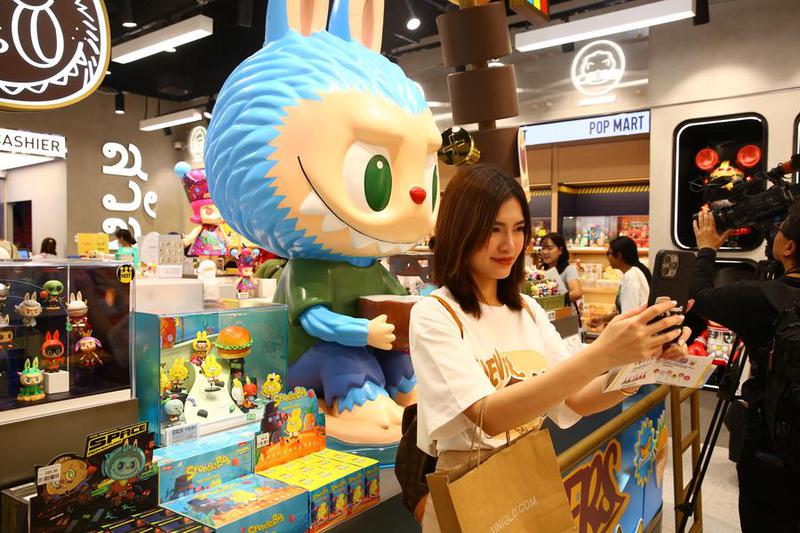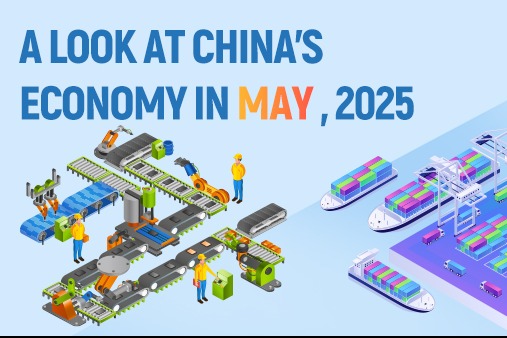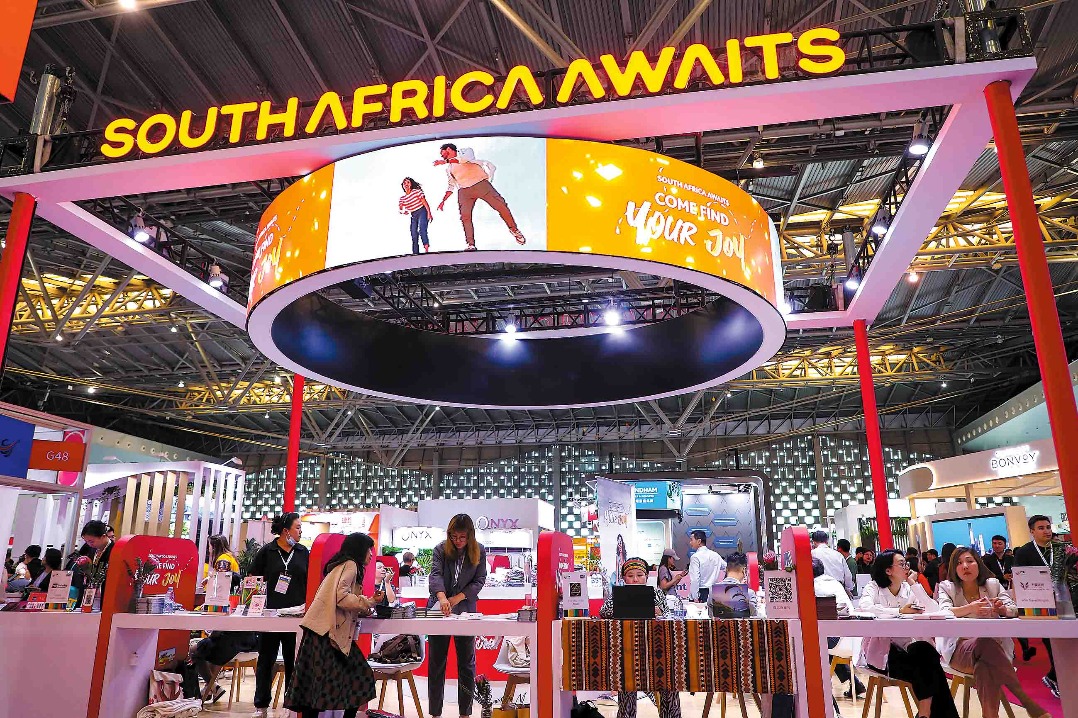Dongguan eyes more Labubu moments
Companies in city mixing toy production with cultural elements to recreate Pop Mart's success


Dongguan, Guangdong province, a manufacturing hub for the global toy industry, is undergoing a transformation to make more collectible and designer toys, driven by domestic demand and international appeal.
From contract manufacturing to original brand and IP (intellectual property) creation, companies in the city have been racing to turn production muscle into cultural influence.
This momentum is powered by leading industry players like Pop Mart, a Beijing-based cultural entertainment and collectible art toy-making company.
This year, Pop Mart International Group became an overnight frenzy and a mainstream lifestyle icon, with a market value of around HK$333.9 billion ($42.5 billion).
A mint-colored first-generation Labubu collectible toy fetched 1.08 million yuan ($150,256) at the Yongle Spring Auction 2025 on June 10.
The success of its iconic Labubu character has not only captivated fans, but also sparked ambition among Dongguan-based toymakers to launch original IPs of their own.
According to local officials, Dongguan — home to more than 4,000 toy manufacturers and 1,500 upstream and downstream players in the supply chain — produces nearly one-fourth of the world's animation derivatives and 85 percent of art toys.
In 2023, the city was officially designated as the "capital of art toys", underscoring its central role in the global toy economy.
Behind this rise is a deep-rooted partnership between Dongguan and toy brands like Pop Mart. By 2020, more than 30 factories and partner companies in the city had become key suppliers to the brand, providing essential production capacity and reinforcing Dongguan's position as China's largest toy export base.
Collaboration has been expanded beyond supply chains to co-develop industry standards. Pop Mart joined hands with the Guangzhou Customs Technology Center, the local government of Shipai town, and Dongguan's collectible toy association to draft 10 group standards. These include methods for testing plush toy durability and textile classifications, helping to professionalize the sector and support its global expansion.
The shift from OEM (original equipment manufacturer) to OBM (original brand manufacturer) is gaining speed. "The success of Labubu made us realize the value of original IP," said Luo Ruixin, marketing director of Shanzi Cultural Co Ltd, a startup founded in Dongguan in 2023. The company's panda-themed IP Lailai Sports, inspired by China's growing interest in health and fitness, has already sold more than 240,000 units.
"We're a small company, but our team is very young — mostly under 25. We know what young people are looking for from toys. Dongguan gives us a unique edge: designers and marketers are based right next to some of the world's best manufacturers."
The local government is also doubling down in this industry with more efforts. On June 10, Shipai in Dongguan hosted the 2025 Art Toys Industry Ecosystem Partner Conference.
Zhan Zhibin, Party secretary of Shipai, quoted by the National Business Daily, said that high-quality development of the collectible toy industry needs to be supported by clustering.
"The government is ramping up policy support to drive quality improvements and upgrades across the collectible toy industry — from design and R&D to production, distribution and financial services," said Zhan.




































